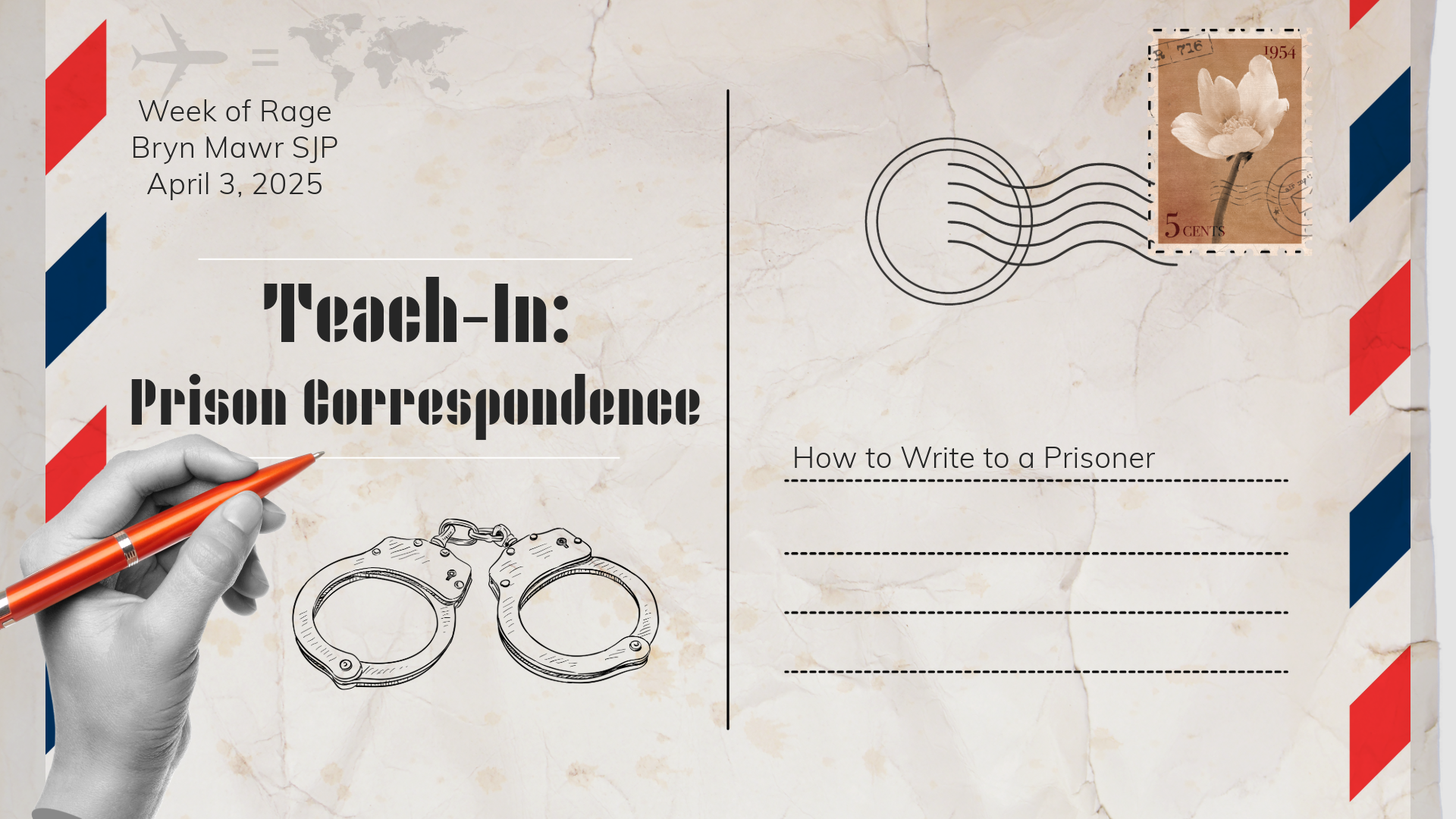In light of National SJP’s (Students for Justice in Palestine) Week of Rage, students at Bryn Mawr decided to participate by hosting their own events on campus. One of these events was called “Teach In: Prison Correspondence for Prison Abolition.” The event was held on April 3rd in B25 in Carpenter Library and was hosted by Jai Abbott, a student at Bryn Mawr College who started her project through the Benjamin Lay Fellowship.
Abbott taught the audience about the large amounts of people who are incarcerated, and the effects that those harsh conditions have on those people in the name of justice. “Creating a prison correspondence has clear effects on the mental health of those incarcerated, with byproducts of preventing crime and violence and helping prepare them for release,” says Abbott. “In 2018, only 2% of people charged with a crime actually went to trial. 8% [of that 2%] got their charges dropped and 90% accepted a plea. Additionally, people should not be defined by the worst thing they’ve ever done under circumstances most of us could not imagine.”
Through her lecture, presentation, and planned group discussions, Abbott encouraged her audience to start communicating with prisoners through writing and sending letters. This process is intended to not only get more students involved with activism against the prison system, but also to help aid those who have experienced negative mental health effects from the prison system. Abbott’s teach-in encouraged students to reflect on how they view those in the prison system and how they can change that moving forward, especially if they choose to start writing to them.
“Some of us may have some anxieties going into this process. Because of the narratives around prison, many of us don’t see incarcerated people as people we could form friendships with, even if we see them as people who deserve justice,” says Abbott. “You may be tempted [if you continue with this process] to write to people you perceive as non-threatening — that more often being women and people convicted of non-violent crimes. I want to convince you to do otherwise.”
As Abbott continues to encourage the idea of becoming pen pals with prisoners, she does advise caution, as individual letters will e prison system; “Creating a prison correspondence does also mean directly funding the prison system. While the letters themselves are not pricey, they go towards making a profit for a system that is described as a new Jim Crow lifestyle and legalized slavery by others. These resources will not go towards creating a more empathetic and restorative system.”
While Abbott acknowledges these truths, she still believes that the idea will overall be beneficial. Thus, she ends her lecture by giving a bit of insight into how to start writing to prisoners — with the usage of the website www.writeaprisoner.com — as well as a few notices for the audience before they start the writing process.
“For incarcerated people, it can be difficult to remember that there is a world outside of the system and that most of them will access it eventually,” states Abbott. “Contacts with outsiders, even strangers, can be a welcome reminder that this will not last forever.”
